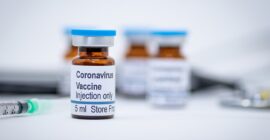Public artificial sweeteners are used in food and drinks that are packaged as substitutes for sugar. This artificial substance has a molecular structure similar to sucrose – commonly called “table sugar,” “white sugar,” or “sugar granulation” – so that the taste is like that but has a much lower calorie value. Therefore, sugar substitutes are marketed as a healthier alternative for natural sugar and their derivatives, especially for those who suffer from diabetes or want to lose or maintain their weight. Apart from the advertised benefits, artificial sweeteners have been associated with health problems, including brain manipulation and higher risk of cancer in consumers. A recent study (via PLOS Medicine Journal) tries to correlate the dangers of cancer with consumption of artificial sugar substitutes such as Acesulfame-K, Aspartame, and Sucralose.
This finding is part of the ongoing Nutrinet-Santé research, an ongoing online study that is intended to identify interactions between health and nutrition. The research program began in 2007 and has made members participate in periodic online health surveys.
Aspartame sweeteners pose the highest risk of cancer
In a special study of the relationship between artificial sweeteners and cancer risk, research groups are looking for input from more than 102,000 French adults. Based on data delivered by these users, researchers develop an understanding that artificial sweeteners, and especially aspartam, pose a high risk of cancer among people who consume them through food and drinks that are packaged or as substitutes of sugar sold by brands such as the same and nutrition.
The researchers asked participants to upload their 24 -hour diet notes to assess their nutritional intake and the number of sweeteners consumed. Data is separated based on the age of the participant, gender, body mass index (BMI), the level of physical activity, height, weight gain through the time line of assessment, and consumption of tobacco and alcohol products. This study also takes into account the family history of cancer and diabetes and the absorption of daily sodium, saturated fatty acids, fruits and vegetables, dairy products, and wheat foods.
Artificial sugar is associated with cancer associated with obesity
This study shows the consumption of artificial sweeteners increases the risk of cancer related to a person’s breasts and obesity. Previous studies have linked the probability of obesity with consumption of artificial sweeteners, while others also highlighted the possibility of higher fat people to suffer from cancer. The author of this study suggested that they were the first investigation that directly associated the use of sugar replacement with the risk of cancer related to obesity.
Interestingly, the amount of sugar substitute intake does not directly increase or reduce a person’s tendency to develop cancer. The only difference arises when this replacement is fully cut off from the diet. The researchers also suggested that this research should be replicated on a larger scale with different demographic groups to verify concerns about consumption of artificial sweeteners. Quoting the fact that the Nutrinet-Santé cohort is limited to French citizens-with the majority of them are women, who are social, financial, and special in educational More comprehensive to build concrete relations between artificial sweeteners and cancer. They also call for global institutions to study further research, especially to increase awareness among consumers about the adverse effects of sugar replacement, which is present in excessive amounts of food and drinks.




